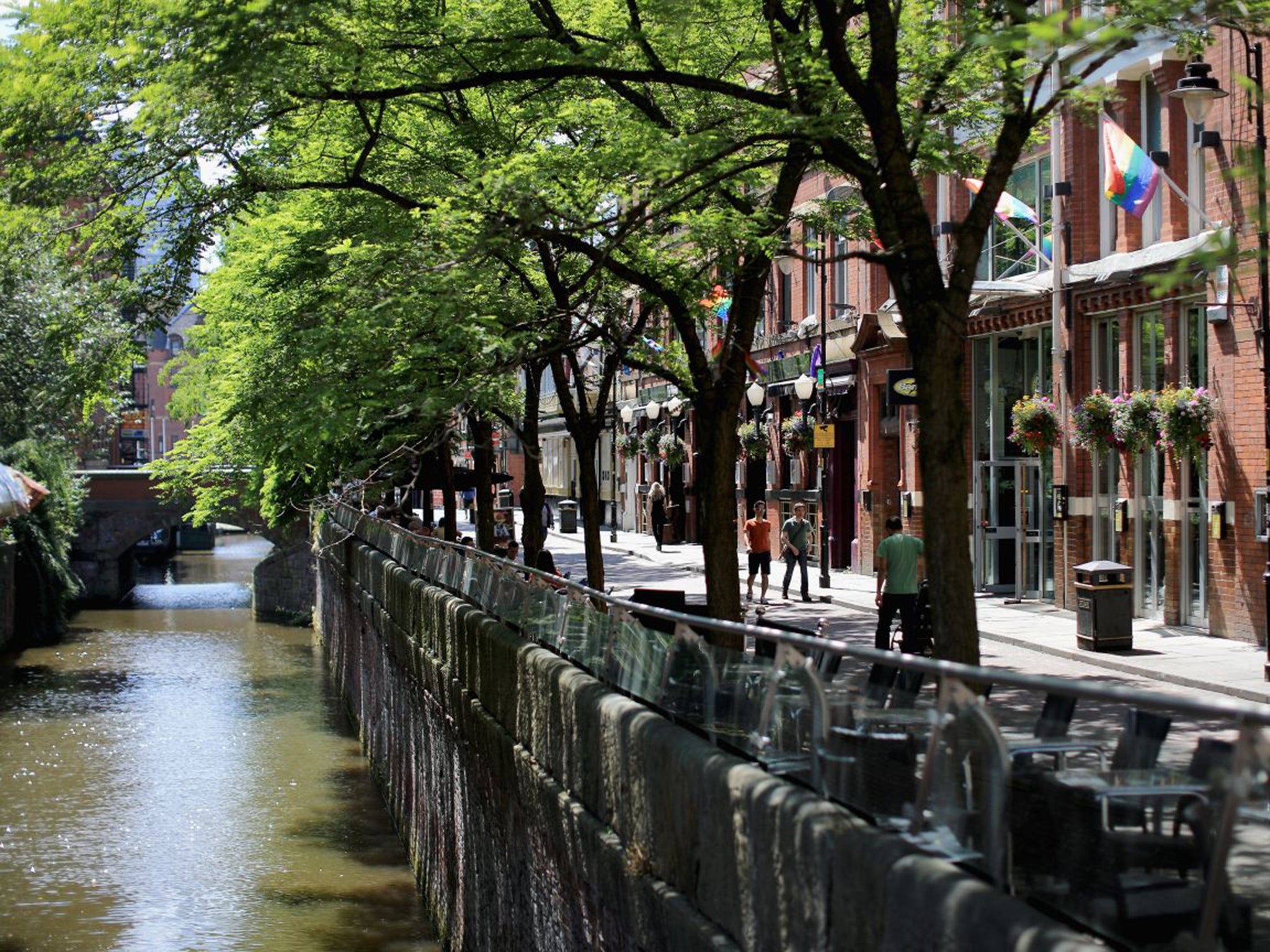Manchester canal 'serial killer': Spate of 61 deaths in city unlikely to be caused by accidents only, warns psychologist
He says number makes it 'extremely unlikely' that accidents and suicides explain them all but police - and some locals - disagree

Your support helps us to tell the story
From reproductive rights to climate change to Big Tech, The Independent is on the ground when the story is developing. Whether it's investigating the financials of Elon Musk's pro-Trump PAC or producing our latest documentary, 'The A Word', which shines a light on the American women fighting for reproductive rights, we know how important it is to parse out the facts from the messaging.
At such a critical moment in US history, we need reporters on the ground. Your donation allows us to keep sending journalists to speak to both sides of the story.
The Independent is trusted by Americans across the entire political spectrum. And unlike many other quality news outlets, we choose not to lock Americans out of our reporting and analysis with paywalls. We believe quality journalism should be available to everyone, paid for by those who can afford it.
Your support makes all the difference.A sign on Manchester’s Canal Street, which runs along the Rochdale Canal, warns of the “significant risk” of falling into the water.
Glass and metal barriers sit on top of the low stone wall, preventing it from being used as a seat from where you could topple backwards.
The signs are there for a good reason; a total of 61 bodies have been pulled from Greater Manchester’s waterways in just six years.
But, according to an academic at Birmingham University, many of those may not have perished accidentally.
Professor Craig Jackson, head of psychology, claims the death toll is so great that a killer could be on the loose.
“It’s extremely unlikely that such an alarming number of bodies is the result of accidents and suicides,” he argues.
Greater Manchester Police is adamant the deaths are not suspicious, but speculation on Twitter questions if some were pushed, resulting in #ThePusher hashtag.
One of the deaths investigated by professor Jackson was of Chris Brahney, 22, from Timperley, who was found dead in the Manchester Ship Canal after he went missing from a Stone Roses concert in June 2012.
Mr Brahney had become separated from his friends following the gig. An open verdict was recorded at his inquest and the coroner apologised to his parents for not being able to answer how he came to be in the canal.
Manchester Metropolitan University student Souvik Pal, 18, was found in the Bridgewater Canal in January 2013, after being thrown out of a nightclub in Trafford on 31 December. He was seen walking away with a man who was never traced. Again, an open verdict was recorded.
Workers in Canal Street, in the heart of Manchester’s gay district, suggest that many people who visit the area drink and take drugs, making them more vulnerable to accidents.
Hospitality manager Ali Eskandari recalls two fatal incidents in 18 months. “Obviously it’s a worry that people are dying in the canal because we want to encourage a feeling of safety and security for people in the village,” he said.
Hair stylist Kurt Laing added: “A lot of people go cruising on the towpath between the two bridges. Whenever someone dies, it’ll be on Facebook that it’s happened again.”
“There should be more cameras down on the canal bank to make people feel safer,” he added. “There are lots of rumours about ‘The Pusher’.”
Stephen Faulkner, who works at a pub, believes “The Pusher” may be at large, in the form of a street robber. “You get people who’ve been drinking and if someone wants their wallet, they’ll get pushed in. I do believe people are being pushed in to the water,” he said.
Police have played down professor Jackson’s theory that a serial killer could be on the loose.
Greater Manchester Police said it is committed to thoroughly investigating “each and every unexplained death”.
“Only after a robust investigation into the circumstances of each death would the investigators deem one to be ‘non-suspicious’ and pass the file to the coroner,” a statement said.